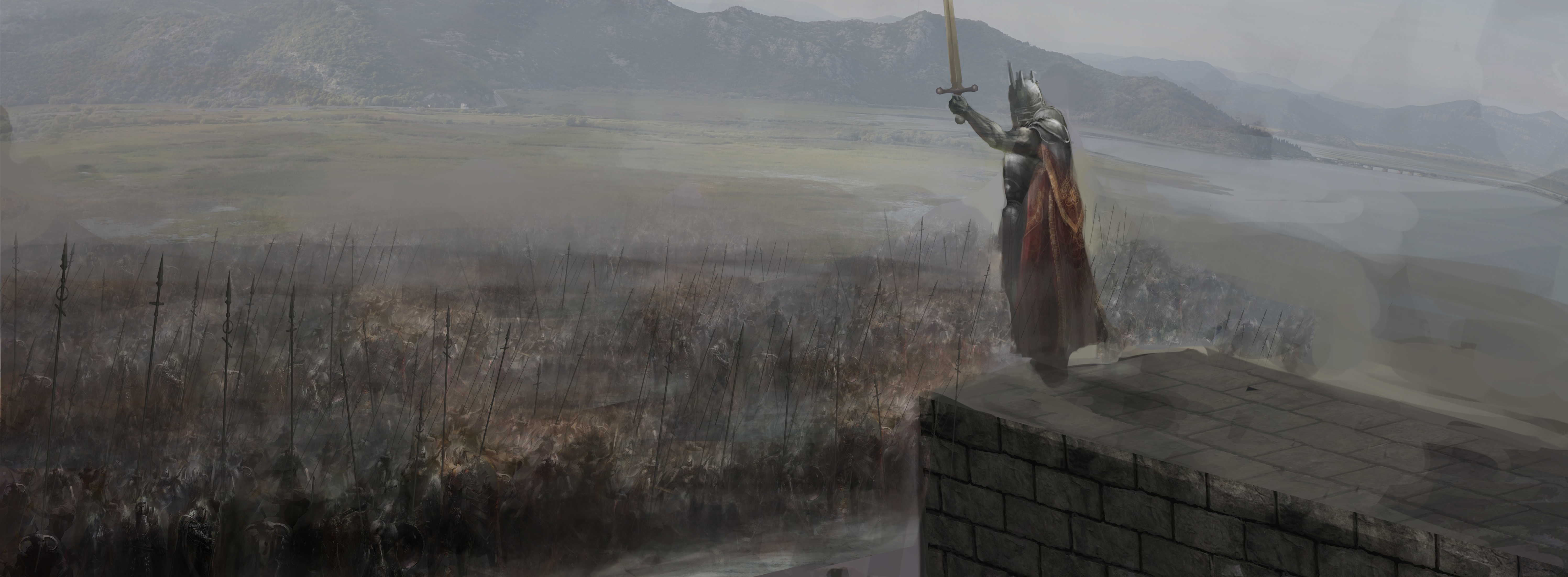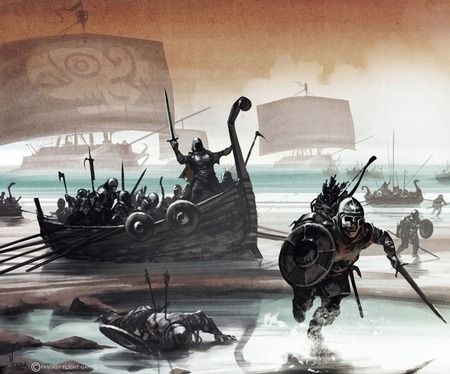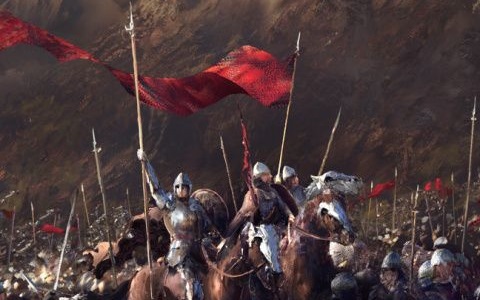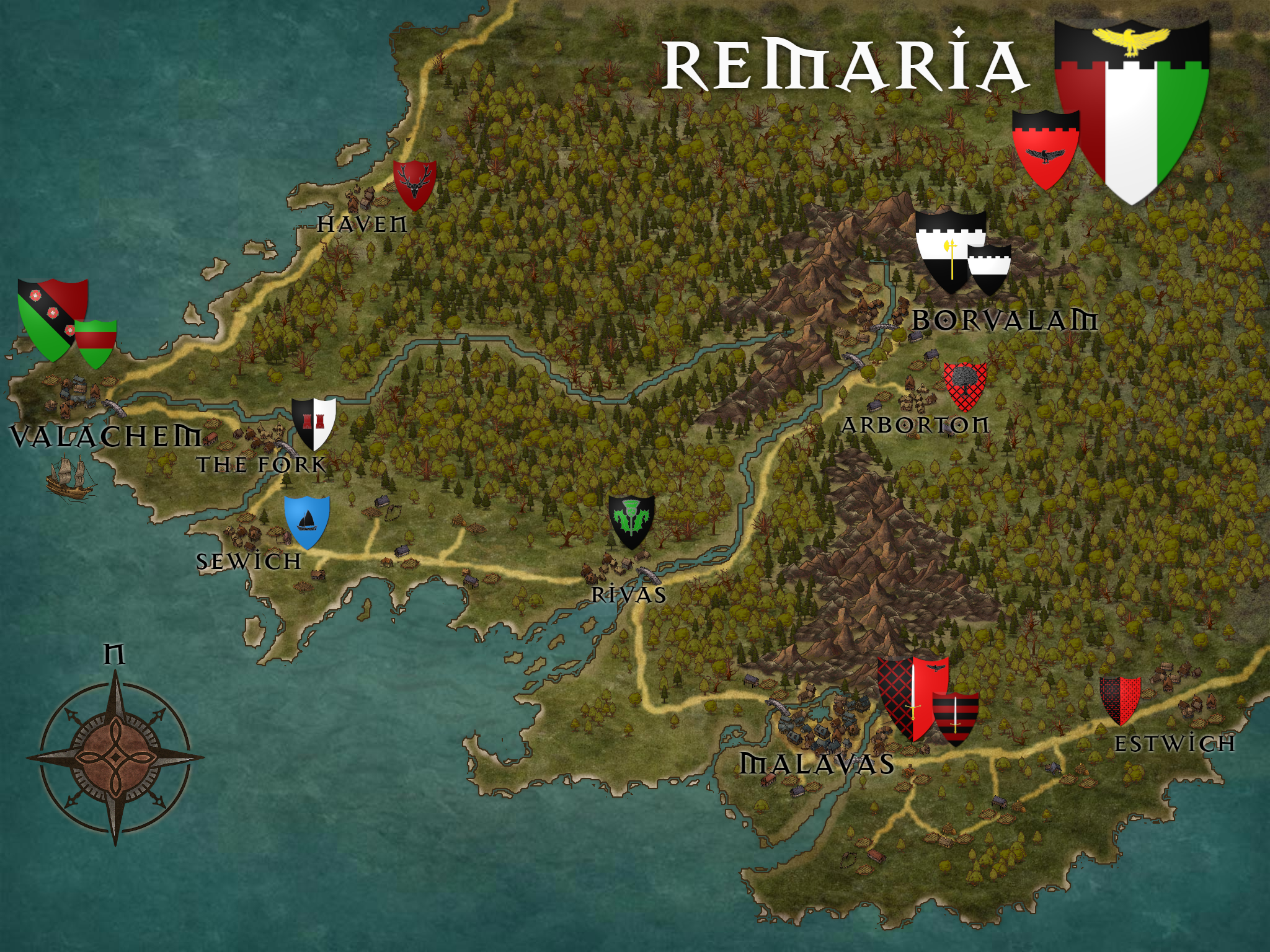Principality of Remaria
The Principality of Remaria is a nation in the east of Istaria, along the southwestern coast near the mouth of the Sea of Mist. The inland portions of the Principality is a land of tall mountains and thick forests shrouded in an almost perpetual fog. Along the coast the land levels out to gentle hills and grassy plains. The capitol of the Principality is Malavia, the only major city in the sparsely populated nation.
Borvalem and Valachem are small cities and the seats of the nations only two counties, while Estwich, Rivas, Sewich, The Fork, Arborton, and Haven are all sizeable towns and the seats of local boyars. There are several smaller villages dotting the countryside along the coast, but the thickly forested interior is all but unpopulated except for the land very close to Borvalem.
Remaria is a land with a troubled past, formed as a result of conflict with their Eastern neighbor Brisland and reduced in power by conflict with their northern neighbor Argastilan. A nation who once had the potential to dominate trade through the mouth of the Sea of Mist, it now has been reduced to a minor power struggling to overcome interior troubles.
Structure
The Principality of Remaria is ruled by Prince Marius Borgas from Malavas. There are two counties in the nation, each overseen by a count from the cities of Borvalem and Valachem. These counts swear fealty to the king and are in charge of large landholds that include boyars who swear fealty to the counts. Exceptions to this are the boyars of Estwich and Rivas, who are loyal directly to the Prince.
While Prince Marius has all the rights and responsibilities of a king in any other country, the original formation of Remaria dictated that there would be no king. This was a demand of the lord of Borvalem at the time, who did not want to see one ruler with absolute power controlling the fledgling nation. While the power of the prince has grown over time to equate to that of a king, the title has remained the same as a matter of tradition.
History
The history of Remaria and Brisland are intertwined, at least in their beginnings. Around the year 329 I.R., disputes over fishing water rights off the coast between the town of Estwich and the city of Riverton arose. The land between the two settlements was mostly untamed, but as the fishing fleets of both grew they began to sail into the same waters. For some time the argument was simply between fishermen shaking their fists at each other. As the impact on the economies of both Riverton and Estwich became more apparent, the leaders of the settlements began to take notice.
The Fishers' War
Threats, blustering, and demands were traded back and forth for two years, but finally things came to a head when a volley of arrows was fired upon fishing boats from Estwich by a Riverton military vessel patrolling the disputed waters. Estwich turned to their neighbor to the west, Malavas, for aid. While Malavas had its own successful fisheries, it saw Riverton pushing Estwich to the west as something that could lead to a similar conflict between the two neighbors. Malavas agreed to help Estwich, and together they sent an army overland towards Riverton. Riverton likewise called from aid, from their eastern trade partner of Brisburgh, and a war was waged for almost two years upon the mostly uninhabited strip of land between Riverton and Estwich. The forces of Riverton and her allies prevailed in the end, but by a narrow margin.
The Malavian Confederation
After the war, the town council of Estwich was fearful of reprisals from Riverton. Malavas, too, saw this new partnership between Riverton and Brisburgh as a threat. Never before in the region had two major city-states allied together in a time of war. While Estwich did not boast a large number of fighting men, it could serve as an important buffer between the eastern alliance and the city of Malavas itself. The two settlements allied, officially signing an agreement in 335 I.R. that gave Estwich the promise of military protection from Malavas in return for regular tithes, military land and water access, and the promise to contribute soldiers to any other conflicts Malavas might find itself embroiled in. Thus was born the Malavian Confederation.
The Riverton Raids
Despite the peace holding for four years, the Confederation faced several hard seasons in a row in respect to both agricultural and fisheries production due to disagreeable weather on both fronts. In response to seeing his people facing impending starvation, in 337 I.R. the King of Malavas dispatched troops by both land and sea disguised as tribal raiders to attack fishing boats and villages near the more prosperous Riverton to steal food to be brought back to the Confederation. Operating out of Estwich, bands of raiders worked their along the coast towards the rival city.
Riverton once again called upon Brisburgh for aid, and a build-up of patrols both on land and sea put an end to the raids within months. While the King of Riverton publicly proclaimed the raids to be perpetrated by the Confederation, there was never an official declaration of war and the disguised troops were called back. This incident prompted Riverton and Brisburgh to enter into a formal permament alliance in 338 I.R., called the Riverton Alliance.
The Western Expansion
After the formation of the Riverton Alliance, the Malavian Confederation no longer had any hope to compete with their growing eastern rivals. A non-agression pact was signed in 340 I.R. between the two states; one that would last in spirit to this day, if not followed to the letter by either side over the subsequent centuries.
Still suffering from agricultural shortfalls in the years leading up to the non-agression pact, the Confederation turned their attention to the west to find ways to feed their people. Rivas, a growing town on the other side of the Thornback River, was the next likely source of surplus foodstuffs. Sitting at the mouth of the large river delta; Rivas consistently had more supplies of fish, shellfish, and other aquatic foodstuffs. While willing to trade the excess to their neighbors, the Confederation had spent much of its wealth on the military actions against Riverton and didn't have the coin to feed all of the people on imports. Rather than starting another conflict, Malavas negotiated a protective alliance in exchange for tariffs in the form of surplus aqua-cultural product. This arrangement eased the food shortage in the Confederation, officially added the town of Rivas to the domain of the growing partnership, and protected the smaller town from tribal raiders in the inland forests and a rival power growing further west: Valachem.
The Fall of Valachem
In the years where Malavas and its allies were competing with Riverton to the east, the city-state of Valachem had remained mostly isolated and did not encounter the same level of military conflict. As the city grew, farmlands around it prospered and several villages grew to larger towns. By way of a series of trade agreements, the towns of Haven, The Fork, and Sewich all became part of the growing kingdom of Valachem. While the economy of the kingdom prospered in its isolation, its military readiness was almost non-existent.
In the thirty years following the Riverton Raids, the Malavian Confederation grew and prospered. Always wary of the Riverton Alliance breaking their non-agression pact, they maintained a large standing military and ensured that every able-bodied man in their domain was provided a spear and a shield should he be called to defend his homeland.
When a new king - Remus Nagalan - took the thrown in Malavas in 335 I.R., he found himself in charge of a kingdom with a strong military and a floundering economy. So many resources had been poured into the soldiery that all other aspects of the kingdom were underfunded. His eyes turned west to the kingdom of Valachem, and the low-hanging fruit of their prospering neighbor was too tempting to be resisted. He marched west with almost the entire army of the Confederation in 336 I.R., and within a month had laid siege to the city of Valachem itself. After several days of bombardment from catapults, the defenders conceded defeat and surrendered the city to Remus. By way of an almost bloodless conquest, Remus had doubled the size of the Confederation and ensured a thriving economy in a matter of months.
The Remarian Reformation
Upstream along the Thornback River, at the foot of the Thornback Mountains, lies the city of Borvalem. In 336 I.R., it was little more than a large town with a scattering of farming and logging villages loyal to the boyar who protected the region. Seeing this as the last outpost to total domination of the region, King Remus turned his attention northwards soon after conquering Valachem. The boyar knew they had no hope of defeating the Confederation in battle. Even with the terrain favoring a defensive war, the loss of life would be too much for the small culture to endure. Borvalem entered into negotiations with the Confederation and soon a new pact was drawn up between all of its members.
Arguing against the totalitarian power of a King ruling so many, several of the member-settlements demanded that Remus abdicate as king and accept the title of Prince. The original articles of confederation were also thrown out, and a new set of articles of reformation were drawn up giving all of the counts and boyars in the land positions on a council that would decide the laws of the land. Remus agreed to take the title of prince, as long as the new nation would bear likeness to his name so that his legacy would live through the ages. Thus was born - in 337 I.R. - the Principality of Remaria.
The Road North
Ever having the mind to expand his domain, Remus was not content for his newly formed Principality to remain idle. North of Haven he forged a new path, sending engineers to carve out a road that stretched all the way to the mouth of the Sea of Mist. Seeing the opportunity to become a great trading nation by controlling the Mouth, he ordered the construction of a fortified city along the narrowest point in 369 I.R.. The newly built Normere thrived for some time, and coin flowed into the coffers in Malavas as the new Principality taxed any vessel passing through the Mouth.
The Fall of Normere
Argastilan was an established kingdom that encircled most of the coastline of the inland sea at this time, and they were hit very hard by the new restrictions to trade with the western realms. Not content to have their own coffers bled dry by a foreign power, or to be taxed on trade routes they had controlled for centuries, Argastilan demanded that the Remus stop the taxation of the trade route through the Mouth in 379 I.R.
When he refused, Argastilan mustered the full force of their military and marched on Normere. Their sizeable fleet encircled the city harbor and bombarded it with catapults mounted on the bows of their technologically superior vessels. The simple galleys of the Remarian navy had no hope in matching the Argastilan ships, and the city of Normere was surrendered after a short siege. The city was renamed Tristopolous by the king of Argastilan after the captain who lead the Argastilan fleet's assault, Aladaver Trist.
The Crow Dormant
Since the Fall of Normere, Remaria has become an isolationist state who fiercely guards its borders. The Principality no longer has expansionist ideas after being soundly beaten on both its eastern and northern borders. Content to enjoy its geographic isolation and the protection of tall mountains and thick forests, the Principality now trades openly with its neighbors. Internal disputes generally occupy its military and government. Remaria is a troubled land composed of several settlements with disparate ideologies and goals. Never truly uniting as a single people, time will still tell if the story of Remus Nagalan's legacy will continue, or crumble to dust.
Demography and Population
The people of Remaria are a generally insular folk, not terribly interested with the grander affairs of the world outside their own borders. In fact, most Remarians have little interest in anything beyond the lands familiar to them. Often, life in Remaria can be one of hardship and struggle for survival. Hopes of grand adventures and world travels are often put aside to more pressing concerns like not starving or freezing to death.
While all Remarians share many common attributes, such as being fair of skin and dark of hair, there are some exceptions. Long ago the land was divided between the forest tribes and the coastal peoples, and there is still a distinction between them to this day. Those descended from the forest tribes are generally referred to as the Bravani. Those who populate Borvalam, Arborton, and the surrounding villages all share some Bravani blood. This, however, has been watered down since the Remarian Reformation and the influx of people from the coast seeking wealth in the mines of the Thornback Mountains.
Still, some pure-blooded Bravani still remain to this day. Most of them still reside in the forests, traveling the land and retaining the traditional ways of their ancestors. They have a more olive colored skin than their coastal-dwelling neighbors, and almost exclusively have straight, black hair. The Bravani are looked down upon by outsiders, and in return they do not trust anyone who is not Bravani. They have a reputation as thieves and scoundrels, although troupes of performing Bravani actors and musicians are often a welcome sight at town festivals.
Religion
The Temple of the Divines is generally regarded as the only true faith in Remaria, and this has been so since before the founding of the Malavian Confederation. It is a highly regimented polytheistic religion with a presence in every major settlement and which holds a substantial political influence within the Principality and beyond. The Temple has influence not only in Remaria, but also in Teugoras and the eastern reaches of the Marsden Empire. Moreso, it is very prevalent in Brisland, the original home of the faith. The Temple even has farther-reaching goals, and missions have been established to distant lands. The Temple has several militant orders with a presence in Remaria, most notably the Order of the Fallen Star.
Foreign Relations
Remaria has had, for centuries, a non-agression pact with the Kingdom of Brisland. In-fact, this pact dates back to the days of the Malavian Confederation and the Riverton Alliance. While there have been some minor border disputes over the years since the signing of the pact, it still is respected by both parties. For the most part, Remaria is no match for the armies of Brisland, and Brisland has little interest in expanding to the west. If not for this latter fact, the Principality might not have lasted as long as it has.
To the North lies Argastilan. The only major encounter between the two nations was the ten-year taxation of shipping through the Mouth leading to the Sea of Mist and the subsequent fall of Normere to the Argastilani. Since then, Remaria has been content to avoid further northward expansion and Argastilan has been too preoccupied with northern affairs to be bothered with the remote lands beyond the forests on its southern border.
Agriculture & Industry
Being a mostly coastal nation, much of the agricultural endeavors involve major fisheries. There is also adequate farmland spread along the coastal plains. The damp ground is not ideal for crops, and regular rainfalls heavy in salt from the sea reduces the fertility of the soil greatly.
Two major resources that Remaria holds in abundance, however, is timber and silver. Given that most of the country is covered in dense forests, the forestry trade is alive and well in the Principality. While most of their neighbors have little need of surplus timber - their own lands being heavily forested - Remaria still trades a respectable amount to both Argastilan and across the sea to the western realms. Silver, however, remains their chief export and the only way the struggling nation has managed to stave off starvation for its people.
Education
Most of the people of Remaria are relatively uneducated, having been taught only the necessary skills to carry out their role in life by their parents. The wealthy few - consisting mostly of the nobility - receives more formal education from scribes and Speakers of the Temple.

Type
Geopolitical, Principality
Demonym
Remarian
Government System
Monarchy, Absolute
Power Structure
Feudal state
Economic System
Mixed economy
Currency
The official coinage of Remaria is minted in Borvalam, close to the mines in the Thornback Mountains. The gold standard of the realm is the gold talon, which shows the Remarian crow on the face and a crow's talon on the reverse. The silver star, a large coin emblazoned with a six-pointed star on both sides (representative of the six Divines), is more commonly used in commercial trade. A silver ducet is a smaller silver coin which holds half the value of a star and bears the Remarian crow on both faces. The copper punct is a square coin minted in sheets. The six-pointed star of the divines is stamped on this sheet, which is then cut into nine squares. each point of the star makes up one coin, while the center slug is melted down to be recast in future mintings.
Major Exports
The vast forests of Remaria provides a lasting surplus of timber that is exported across the sea to the western realms and north to Argastilan. Remaria also exports silver from the mines of the Thornback Mountains, and this remains their chief surplus domestic product in terms of value.
Major Imports
Remaria imports agricultural product from Brisland, mostly in the form of grains, fruits, and vegetables. They also import some Iron from their western neighbor, although they do have their own respectable iron mines. Exotic goods are traded from across the sea from the western realms, often in the holds of ships that traveled there carrying timber.
Legislative Body
According to the Articles of Reformation singed in 367 I.R., the Prince of Malavia holds power to arbitrate disagreements between the counts and boyars of the land and is head of the military in times of war. All other lawmaking, declarations of war, and decisions about foreign affairs are the responsibility of the Council of Boyars. This council is made up of the heads of each major settlement in the Principality, from Estwich to Haven, and meets once every two years to consult and vote on any major legislative changes. The Prince holds the power to break any ties in the votes.
In reality, the Prince holds power equal to a king and the Principality operates more as an absolute monarchy. The Council of Boyars still meets every two years, but there have been many occasions where the current Prince has overruled their decisions or mandated actions without the council's approval. While some may balk at these violations of the letter of the Articles of Reformation, the erosion of the council's authority has been a slow and gradual thing over the last five centuries. Many boyars today have never even read the Articles, and accept the sovereign authority of the Prince.
Judicial Body
The administration of the common folk and execution of the laws of the Principality lies solely upon the shoulders of the boyars who oversee each settlement, or the count in charge of Borvalam or Valachem. In the case of a dispute between two or more boyars, the Prince has the ultimate authority to arbitrate and decide on any resolution he sees fit.
Neighboring Nations
They say that at night, in the deep forest, you hear strange things. I've heard these things, in the foothills of the Thornback Mountains. The pines whisper in the wind in the night, but if you listen closely you hear something else. It's different for everybody. To some, it sounds like a man choking to death; to others, a girl softly weeping. Most don't go hunting the source of the sounds. Those that do usually come back as mad, gibbering fools.
Remove these ads. Join the Worldbuilders Guild













Comments